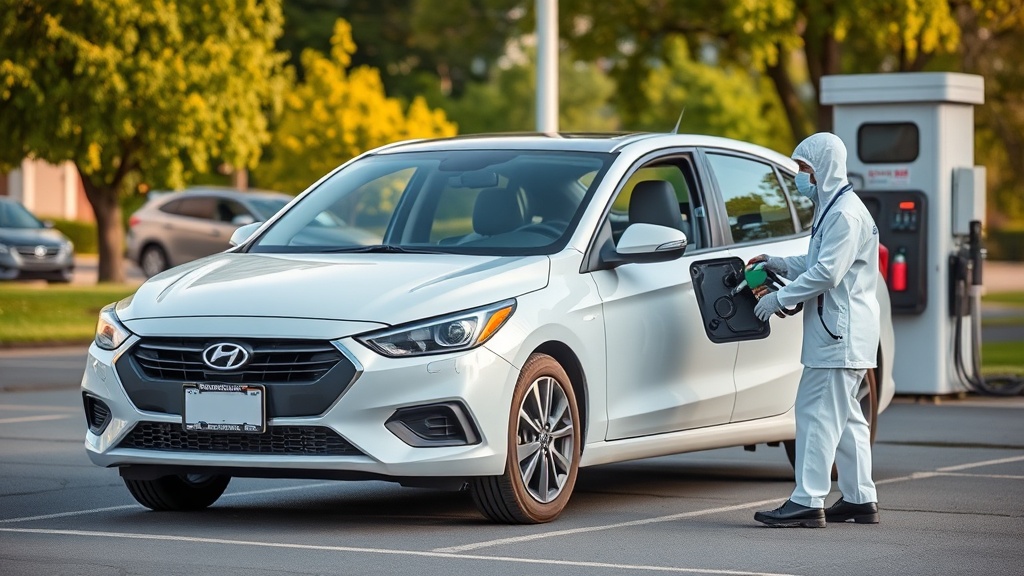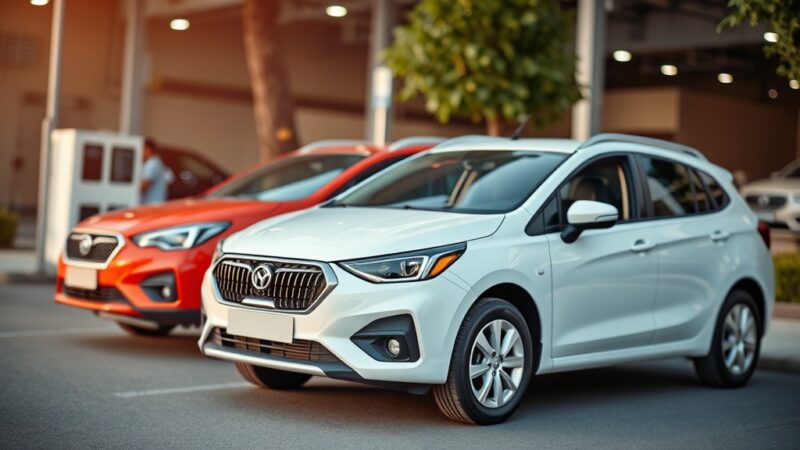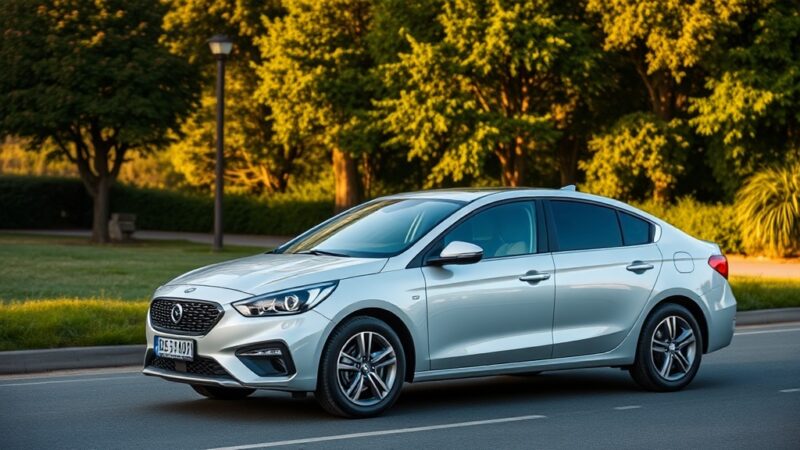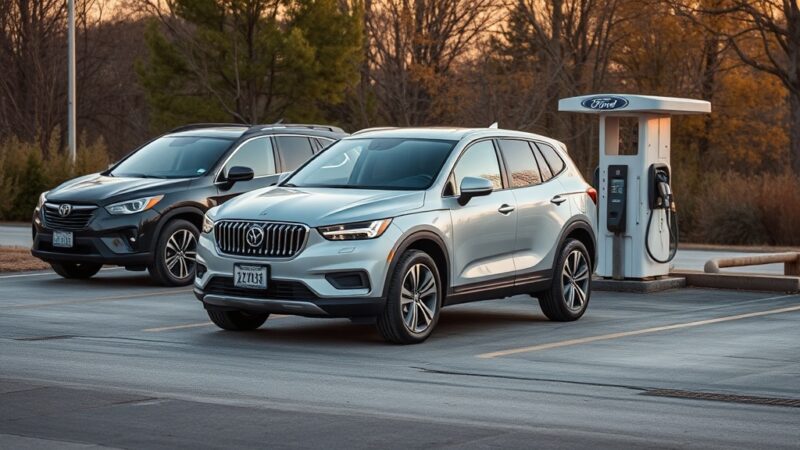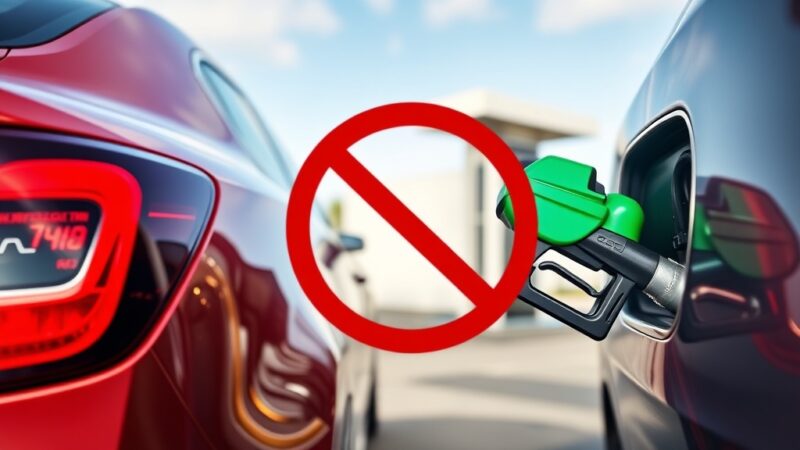Best Car Fuel Economy Options for Healthcare Workers: Choosing the Right Vehicle for Long Shifts
Healthcare workers often put in long shifts, traveling between hospitals, clinics, and patient homes. Finding a vehicle that provides excellent fuel economy can make a significant difference in both pocketbook and environmental impact. Here, we explore the best car fuel economy options specifically suited for healthcare workers.
Why Fuel Economy Matters
For healthcare workers, the job requires mobility. Regular long drives can lead to high fuel expenses, which can be taxing over time. By choosing a vehicle with good fuel economy, you can save money for other essential expenses. Plus, better fuel efficiency means a lower carbon footprint, helping support a healthier planet.
Top Fuel-Efficient Vehicles for Healthcare Professionals
When considering the best vehicles for fuel economy, several models stand out. Here’s a quick overview of some options:
| Vehicle Model | Fuel Economy (MPG) | Type | Hybrid Option |
|---|---|---|---|
| Toyota Prius | 56 | Hatchback | Yes |
| Honda Insight | 55 | Sedan | Yes |
| Hyundai Ioniq | 58 | Hatchback | Yes |
| Ford Escape Hybrid | 41 | SUV | Yes |
| Chevrolet Bolt EV | 119 (MPGe) | Electric | No |
| Kia Niro | 50 | Crossover | Yes |
Factors to Consider When Choosing a Vehicle
As you think about the best car fuel economy options, keep the following factors in mind:
- Fuel Type: Consider whether a hybrid or electric vehicle fits your needs better. Hybrids use both gas and electricity, while electric vehicles run entirely on battery.
- Reliability: Choose a model known for its dependability, as you don’t want vehicle issues interrupting your crucial work.
- Comfort: Look for a spacious and comfortable interior, especially if you spend a lot of time in your car during shifts.
- Safety Features: Prioritize vehicles with advanced safety technologies, like adaptive cruise control and lane-keeping assist, ensuring you stay safe on the road.
- Resale Value: Investigate how well a model holds its value over time, as healthcare workers might want to make a beneficial investment.
Financing and Incentives
Buying a fuel-efficient vehicle doesn’t have to break the bank. Many dealerships offer special financing plans, especially on hybrid and electric models, which can further minimize costs. Additionally, certain states provide tax credits or rebates for drivers who choose environmentally friendly vehicles. Be sure to research any available financial incentives that can ease the purchase.
Maintenance and Longevity
Focusing on fuel economy is essential, but regular maintenance also plays a crucial role in vehicle efficiency. Simple tasks like keeping tires properly inflated and performing routine oil changes can significantly enhance fuel savings. Also, check for software updates if you own a hybrid or electric vehicle, as they may include efficiency improvements.
The Bottom Line
For healthcare workers, choosing a vehicle with the best fuel economy options is vital for both financial and environmental reasons. By opting for reliable and fuel-efficient vehicles, you’re not only supporting your work needs but also contributing positively to the planet’s health. Make informed decisions by considering the models listed above and the factors affecting your specific situation.
The Importance of Fuel Efficiency in Reducing Healthcare Workers’ Expenses and Environmental Impact
When you work long shifts in healthcare, every dollar counts. As a healthcare worker, you often spend long hours on the road, traveling to different facilities or between home visits. This can make fuel expenses a significant portion of your budget. Understanding the importance of fuel efficiency can help you save money and lower your environmental impact, making your work life easier and more sustainable.
The link between fuel efficiency and your finances is clear. The more efficient your vehicle is in terms of fuel usage, the less you spend at the pump. Fuel-efficient cars typically boast higher miles-per-gallon (MPG) ratings, which means you can drive further for less fuel. For healthcare workers often working extra hours or driving long distances, opting for vehicles with good fuel economy can reduce overall travel expenses significantly.
Let’s take a closer look at some essential aspects of fuel efficiency and how they can benefit you:
- Lower Fuel Costs: By choosing a vehicle with better fuel economy, you save more each time you fill your tank. A small difference in MPG can lead to substantial savings over time, especially for someone who drives frequently.
- Tax Deductions: Depending on your location and employment terms, using a fuel-efficient vehicle for work-related travel might qualify you for tax deductions. This further alleviates financial pressure.
- Less Frequent Fill-Ups: With a fuel-efficient car, you won’t need to visit gas stations as often. This is a convenience that can save you time in your busy schedule.
- Extended Vehicle Life: Efficient driving and proper maintenance lead to less wear and tear on your vehicle. This keeps your car running well and reduces the likelihood of costly repairs.
- Better Resale Value: Fuel-efficient cars generally have higher resale values as more buyers are looking for economical options.
In addition to saving money, opting for fuel-efficient vehicles also has environmental benefits. By reducing fuel consumption, you play a crucial role in lessening harmful emissions that contribute to climate change. Here are some ways this benefits both the planet and your daily life:
- Pollution Reduction: Lower fuel consumption leads to fewer emissions, resulting in cleaner air for everyone. As a healthcare worker, you understand how important clean air is for respiratory health.
- Sustainable Energy Use: Many fuel-efficient vehicles use alternative energy sources, further decreasing reliance on fossil fuels. This shift not only protects natural resources but also encourages the development of clean energy technologies.
Now, when considering the “best car fuel economy options,” let’s explore some vehicles that are ideal for healthcare workers. These vehicles not only save you money but also contribute to a smaller carbon footprint:
| Vehicle Model | Fuel Economy (MPG) | Type |
|---|---|---|
| Toyota Prius | 54 City / 50 Highway | Hybrid |
| Honda Accord Hybrid | 48 City / 47 Highway | Hybrid |
| Hyundai Elantra | 33 City / 43 Highway | Sedan |
| Chevrolet Bolt EV | 127 City / 108 Highway | Electric |
| Ford Escape Hybrid | 44 City / 37 Highway | SUV |
Considering vehicles like these aligns with both your financial and ecological goals. It’s essential to assess your individual needs; for instance, if you often carry equipment, an SUV may serve you better over a compact car.
As you think about your own travel patterns and fuel expenses, consider those smart choices. Prioritizing fuel-efficient vehicles not only supports your budget but also reflects your commitment to the community as a healthcare provider. You’ll find that making eco-friendly choices can significantly enhance your work experience. Not only will you save money and effort, but you’ll also contribute positively to the environment.
A little effort can lead to significant rewards, allowing you to focus more on what truly matters—providing quality care to your patients.
Conclusion
As a healthcare worker, every dollar counts, and embracing fuel-efficient vehicles can lead to significant savings. The right car not only helps you cut costs on fuel but also contributes to a healthier planet. When you’re working long shifts, spending less time and money at the gas station can provide you with more time to relax and recharge.
Opting for cars with high fuel economy ratings, like hybrids or efficient compact models, can make a huge difference in your daily commute. These options deliver impressive mileage while keeping maintenance costs low, which is crucial for busy professionals today. Additionally, many fuel-efficient vehicles come equipped with modern features that enhance comfort and safety, making them a smart choice for long hours on the road.
Moreover, being mindful of your fuel consumption contributes to reducing your carbon footprint. As a healthcare worker, you are already committed to caring for others, and choosing an environmentally friendly vehicle aligns perfectly with this mission. It sets a positive example for your community and emphasizes the importance of sustainability in everyday life.
Ultimately, selecting the best car for fuel economy isn’t just a financial decision; it reflects your values as a healthcare professional. Investing in a vehicle that prioritizes fuel efficiency not only eases the burden on your wallet but also supports the broader goal of environmental responsibility. By making informed choices, you contribute to a healthier future for yourself, your community, and the planet. Choose wisely for both your budget and the world around you.

